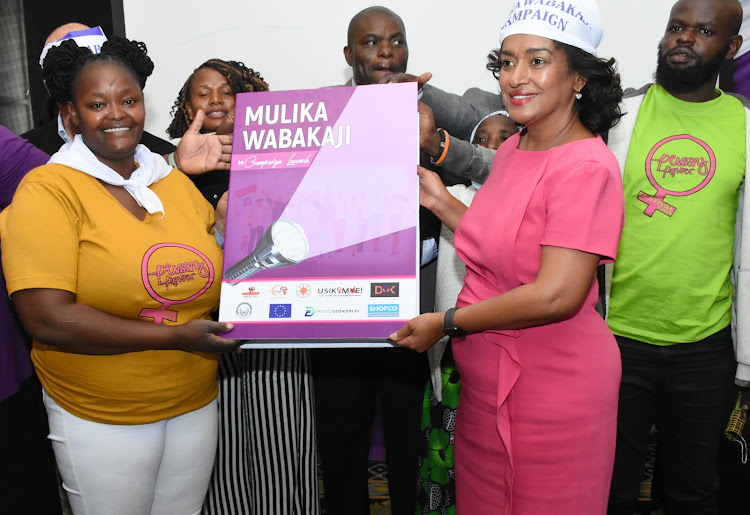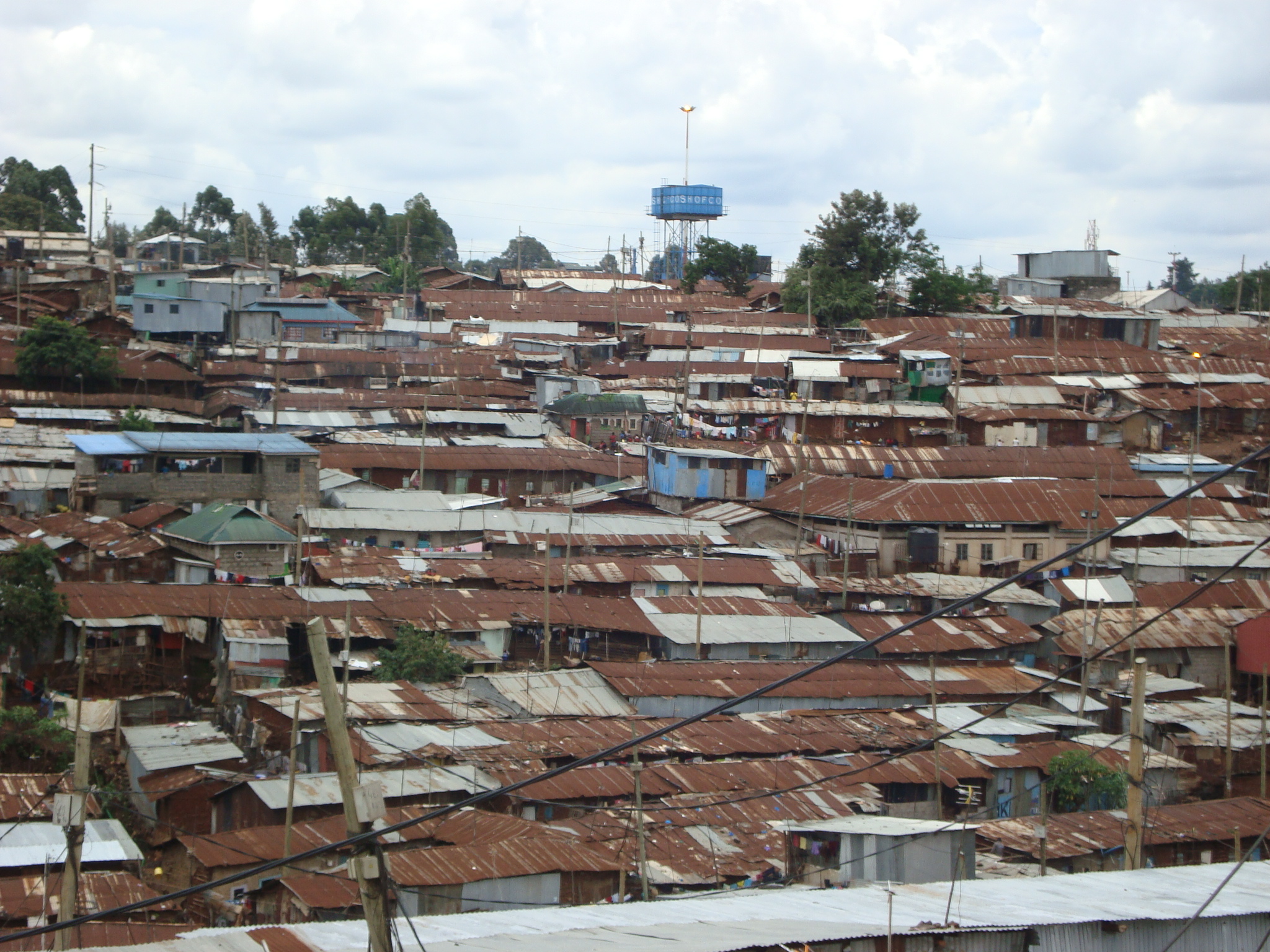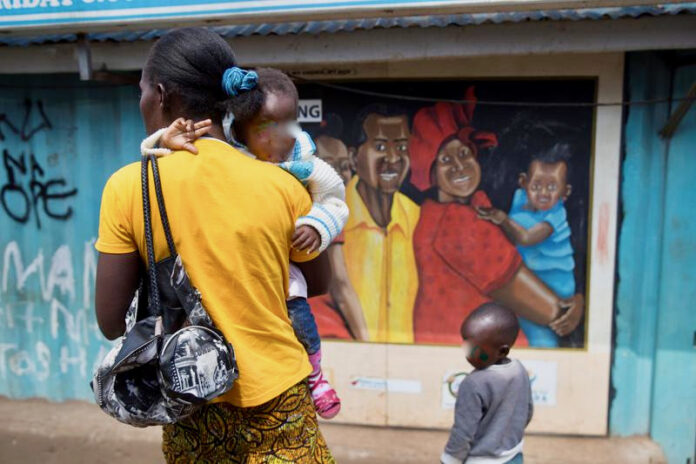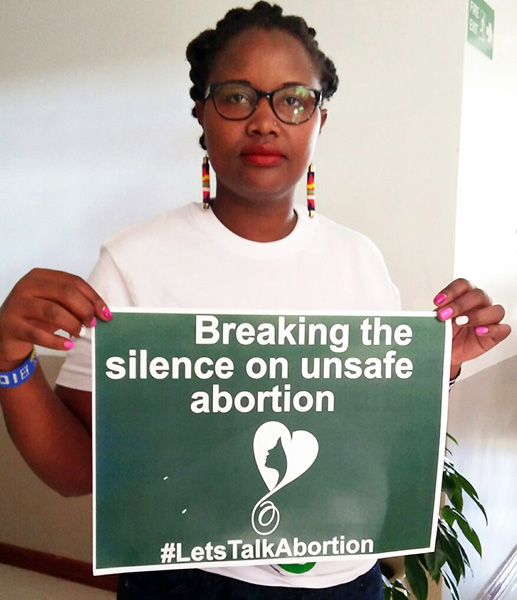By Henry Owino
Nairobi, Kenya: In the sprawling hovel of Kibera we meet with 16 year old Stacy Anyango. Stacy knows too well the impact of abortion, the pains and the struggle that is meted to girls who have undergone abortions.
Stacy in her teenhood innocence reveals she aborted owing to lack of employment to sustain her expected baby. A decision she took due to a lack of assistance from her parents and her teen boyfriend.
“My parents ignored me, neighbors stigmatized me while the partner disappeared, refusing to own up the responsibility,” Anyango regrets.
“My advice to fellow peers is to stay away from men when you are not ready or never rely on other people for support. It can be really tormenting especially for the young mothers who are unemployed and unprepared for parenthood,”Anyango advises.
For her, she chose safe abortion because of her desire for a better life for herself. She knew her inadequate financial capability was unable to take care of herself or a child. Stacy represents many young teens who find themselves with teen pregnancies and many decisions to make.
 The Kenya Demographic Household-based survey (KDHS) shows that teenage pregnancy rates declined to 15% in 2022, from 18% in 2014. Poverty and lack of education were associated with higher rates of adolescent pregnancy, which is about 4 in 10 women aged 15-19 years who have no education have ever been pregnant, compared to only 5% of women who have more than secondary education.
The Kenya Demographic Household-based survey (KDHS) shows that teenage pregnancy rates declined to 15% in 2022, from 18% in 2014. Poverty and lack of education were associated with higher rates of adolescent pregnancy, which is about 4 in 10 women aged 15-19 years who have no education have ever been pregnant, compared to only 5% of women who have more than secondary education.
Legal abortion matters
Since April 2022, the Malindi High Court of Kenya affirmed that abortion is a fundamental right under the Constitution of Kenya this has led to abortion care to increase significantly. The verdict prohibited law enforcers from preventing people from accessing safe abortions performed by trained healthcare professionals in sanitary conditions.
The landmark ruling also held that arbitrarily arresting and prosecuting patients seeking abortion care or health care providers offering abortion services is illegal. It has since then increased the number of women seeking safe abortion.
According to the Kenya Obstetrical Gynaecological Society (KOGS) estimates that every year at least 2,600 women die from unsafe abortions in Kenya, while 21,000 more women are hospitalized annually due to complications arising from incomplete abortions whether spontaneous or induced.Unfortunately, several women have been forced to seek out unsafe procedures performed by people without the necessary skills and in environments that do not conform to medical standards with several women dying of hemorrhage from unsafe abortion procured in the backstreets.
According to the World Health Organization (WHO), around 73 millionTrusted Source abortions occur annually worldwide. Almost 33 million of these are unsafe, and of all unsafe abortions, one-third use invasive methods or involve untrained people.
WHO says unsafe abortion is a leading preventable cause of maternal deaths. Unsafe abortions can result in physical and mental health complications and financial and social burdens. Banning abortion in Kenya could lead to massive increase in the deaths relating to pregnancy and the majority among young mothers.
Additionally, the Malindi High Court reiterated that arbitrary arrests and prosecution of patients and health care providers for seeking or offering abortion services are illegal.
The Court also directed the Kenyan Parliament to enact an abortion law and public policy framework that aligns with the Constitution.
Lobby Groups
Women for women Kenya (WWFK), a lobbyist organization made up of actively working registered medics across various fields, supports safe abortion. The lobby group empowers women on matters of reproductive health, majorly safe abortion services in Kenya.
“Kenya being a largely Christian, third world country still in its infancy has taken steps in advancements in healthcare and unlike a decade ago. In fact, matters on abortion are much safer and easily accessible than any other previous years,” says the lobby group.
The Women’s rights campaigners accuse anti-abortion and church groups in Kenya for spreading false information about a bill to tackle teenage pregnancy and maternal death. There is fear that legislatures are likely to be influenced to vote against it.
The Reproductive Healthcare Bill provides for comprehensive sex education in schools, assisted reproduction such as surrogacy, and access to safe abortion services when necessary.
Criminalizing abortion does not tend to stop people from having abortions, but it does increase complications and deaths.
Religious Views on Abortion
To ensure women safety and protect their dignity, it is crucial that people have access to safe abortions performed by trained professionals in sanitary conditions and Religious assessments
According to Bishop Samuel Ogola, Religious Scholar and leads a church in Kibera, abortion is a difficult, contentious and unresolved issue in society. Many religious groups do not have a common standpoint not only in Africa but worldwide.
Ogola regrets that some religious groups have little or no ambivalence about abortion. For instance, his church, congregants are divided depending on education level, traditional believes, and experiences.
“It is the public domain that nation’s largest denomination thus Roman Catholic Church, opposes abortion in all circumstances. The second-largest, Anglican Church of Kenya led by then Archbishop Eliud Wabukala categorically affirmed through the media, the Anglican church will not support abortion,” Bishop Ogola cited.
“Most of the Christians denominations support abortion rights, although several of these churches temper this support with the call for some limits on when a woman can terminate her pregnancy. For instance, while the Episcopal Church opposes statutory limits on abortion, it teaches that it should be used only in extreme situations.” Bishop Ogola explained.
“I am in support with Christian denominations supporting abortion as a right although, under
exceptional extreme situations only. I must stress it must be an emergency not induced abortion,” Bishop Ogola clarifies.
The Islamic religion in Kenya has not come out with a stance and public position on abortion as its members’ views differ among scholars when abortion is morally acceptable.
The Hindu teachings generally oppose abortion and lacks single organizational authority to speak for them.
Obstacles and barriers to abortion
The Penal Code generally prohibits the performance of an unlawful abortion but further stipulates that a person will not be held criminally responsible for performing it if done for the preservation of the woman’s life.
In addition, there have been more expansive interpretations of this exception issued by the Ministry of Health and the Medical Practitioners and Dentists Board, allowing for abortions to be lawfully performed in cases of risk to the woman’s health or in some cases of rape. Yet, few healthcare providers are trained on the full content of the law and most women remain unaware of the law’s exceptions.
A lack of clarity about legal access to abortion has produced widespread misinformation among women, adolescents, and medical providers. As a result, in Kenya, a woman who wants to safely terminate an unwanted pregnancy must negotiate a maze of misinformation as well as personal, financial, and bureaucratic barriers.
Although Kenyan women with financial muscles usually have access to relatively safe abortions performed by private practitioners, most poor women must resort to unsafe and clandestine means.
Women qualifying for a legal abortion are rarely able to access a safe abortion in Kenya’s public healthcare system.
According to the Human Rights Watch (HRW), access to safe and legal abortion is fundamentally rooted in the realm of human rights. Nations bear the responsibility of upholding, safeguarding, and fulfilling these fundamental human rights.
Regrettably, the majority of African countries have criminalized abortion, while others remain conspicuously silent on the matter. This situation persists despite the fact that many countries, Kenya included, have ratified numerous international conventions that explicitly call for the protection of human rights, including the provision of access to safe and legal abortion.
 Among such international frameworks embraced by Kenya are the Universal Declaration of Human Rights, the International Covenant on Economic, Social and Cultural Rights (ICESCR), the International Covenant on Civil and Political Rights (ICCPR), the Convention on the Elimination of All Forms of Discrimination Against Women (CEDAW), and The Protocol to the African Charter on Human and Peoples’ Rights on the Rights of Women in Africa, commonly known as the Maputo Protocol.
Among such international frameworks embraced by Kenya are the Universal Declaration of Human Rights, the International Covenant on Economic, Social and Cultural Rights (ICESCR), the International Covenant on Civil and Political Rights (ICCPR), the Convention on the Elimination of All Forms of Discrimination Against Women (CEDAW), and The Protocol to the African Charter on Human and Peoples’ Rights on the Rights of Women in Africa, commonly known as the Maputo Protocol.
Earlier this year Kenya hosted African nations to commemorate the 20th anniversary of the adoption of the Maputo Protocol in a pivotal document that explicitly recognizes abortion as a human right under Article 14, this is according to Salome Owuonda, Expert in Gender and Women Rights.
Nicholas Etyang, Advocate of the High Court regrets that Kenya is not binding herself to Article 14 of Maputo Protocol on abortion.
Article 14 of the Maputo Protocol permits abortion under circumstances such as sexual assault, rape, incest, life-threatening fetal anomalies, and when the continuation of a pregnancy jeopardizes a woman’s mental and physical well-being or her life.
However, Etyang says “Kenya has incorporated this provision into its Constitution 2010 in Article 24(6); stipulating that abortion is only allowed if, in the professional opinion of a trained healthcare provider, it is necessary for emergency treatment, if the life or health of the mother is at risk, or if permitted by any other written law.”
Owuonda added that “Section 26 of the law further provides a possibility of expanding the circumstances under which legal abortions can be offered by allowing the enactment of a law for that purpose. Access to legal abortion is further enhanced by Article 43(1) (a), which guarantees each Kenyan citizen the right to access the highest attainable standard of health including reproductive healthcare.”
While Article 43(2) emphasizes that a person shall not be denied emergency medical treatment.
She cites the Constitution lacks specificity regarding cases involving sexual assault, rape, incest, and mental health. The Kenyan law also leaves much of the decision-making power in the hands of the healthcare professionals.
“It is noteworthy that a significant proportion of leadership and decision-making positions within
Kenya’s healthcare sector is occupied by men, implying that men predominantly dictate access to safe and legal abortion for women and girls,” Owuonda points out.
Restricting access to safe and legal abortion does not eliminate the practice but rather raises the
likelihood of women resorting to unsafe and potentially life-threatening methods. In regions where abortion is legally permitted, it is not necessarily more frequent, but it is markedly safer.
Alarmingly, according to the Population Reference Bureau (PRB) on Abortion Facts and Figures estimates 8 million African women undergo unsafe abortions annually. This statistics shows it is therefore imperative to make safe and legal abortion accessible, not only as a human right but also due to the continued occurrence of abortions under restrictive conditions, resulting in loss of lives.
Unsafe abortions contribute to about one in seven deaths related to pregnancy and childbirth,
with Africa experiencing a disproportionate share of maternal fatalities. Research reveals that only one in four abortions in Africa is performed safely, by qualified medical practitioners in facilities that meet minimum medical standards. Regardless of its legal status, women and girls will continue to seek abortions.
Therefore, it is crucial to legalize and ensure the safety of the procedure, not only as a human right but also to reduce maternal mortality, particularly in Africa, and to grant women autonomy over their bodies.
Kenya is even lucky to have devolved its health services to the County Governments to help cascade healthcare to the remotest part of the country to common-man. However, health policies, distribution of drugs and medical supplies for prescribed public health programs remains under National Government execution.
According to the Kenya Law Reform Commission (KLRC), the right to health is one of the most important rights for the human condition without which the exercise of other rights is indispensable.
“One of the key policy objectives of the Kenya National Health Policy 2012-2030 is to offer essential health care by providing medical services that are affordable, equitable and responsive to client needs,” KLRC states.
Abortion context
Accordingly, abortion is among the crucial parts of reproductive healthcare which is termination of a pregnancy by removal or expulsion of an embryo or fetus. When it occurs without intervention it is known as a miscarriage or spontaneous abortion.
While a primary care service, abortion does not constitute a part of standard primary healthcare.
Rather, abortion services are largely siloed in stand-alone clinics.
Around 60% of abortions in 2017 were performed in clinics specializing in abortion and 35% of abortions were performed in non-specialized clinics rather than within physician practices or hospitals.
The marginalization of abortion into clinics results in a professional isolation between abortion providers and those who practice in mainstream medicine. Despite abortion being legal, its marginalization in medicine is further reflected in its presence or lack thereof in medical training, in which abortion-related material is often lacking.
Lectures or discussions about abortion are not regularly included in medical students’ pre-clinical education and less than half of programs offer clinical experience on abortion during third year rotations.
The medical training curriculum needs reviewing for ease of implementing reproductive healthcare and abortion provisions, in accordance with Chapter 4, of the Bill of Rights in the Kenyan Constitution 2010.
Moreover, despite family medicine practitioners’ involvement in reproductive healthcare, only a small proportion of all family medicine residency programs offer abortion training Reasons for abortion
According to Dr Anthony Ajayi, an expert in Sexual, Reproductive and Health Rights (SRHR) the decision for women to undergo abortion is complex, difficult, and personal. There are different reasons women choose to procure abortion. One undisputed obvious reason is health concerns or fetal anomalies, and others may choose to terminate an unintended pregnancy.
“The term unintended pregnancy does not always explain the reasons and personal circumstances behind a person’s decision to have an abortion. Often, people who have had an abortion feel too judged to discuss their reasons or feelings afterward,” Dr Ajayi observes.















